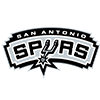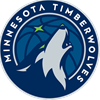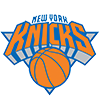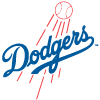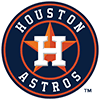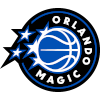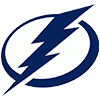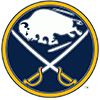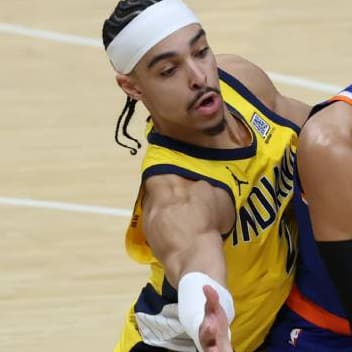The Kyle Korver trade got the fantasy world buzzing about possible trades, and how they would impact the fantasy landscape. The internet was instantly flooded with tweets and articles about players who might move, and which teams are likely to be involved. Every hint or rumor was followed by debate about potential fantasy implications.
Our own Ken Crites wrote about players whose fantasy value would be impacted by potential trades.
Following Ken's lead, I want to anticipate players whose value could change after potential trades. After discussing rebounds last week, I want to focus on assists this week. Can we use math and data to identify players who, if traded, might see a big change in their assists totals?
There's no "I" in "assist"
More than any other category, assists require teamwork. Assists require skill and court vision and the ability to read a defense, but assists also require the guy who catches the ball to make a shot. A good dish sets up a teammate for a better shot, but players don't get to choose their teammates. Some people are stuck passing to Robert Covington and Marcus Smart – and the greatest point guard of all time would have difficulty getting those two over 40 percent for a season.
While all categories are impacted by the players around them, assists are unique in this way. Even if his teammates don't box out, Giannis Antetokounmpo can just reach over everyone and get a rebound anyway. Raymond Felton has played
The Kyle Korver trade got the fantasy world buzzing about possible trades, and how they would impact the fantasy landscape. The internet was instantly flooded with tweets and articles about players who might move, and which teams are likely to be involved. Every hint or rumor was followed by debate about potential fantasy implications.
Our own Ken Crites wrote about players whose fantasy value would be impacted by potential trades.
Following Ken's lead, I want to anticipate players whose value could change after potential trades. After discussing rebounds last week, I want to focus on assists this week. Can we use math and data to identify players who, if traded, might see a big change in their assists totals?
There's no "I" in "assist"
More than any other category, assists require teamwork. Assists require skill and court vision and the ability to read a defense, but assists also require the guy who catches the ball to make a shot. A good dish sets up a teammate for a better shot, but players don't get to choose their teammates. Some people are stuck passing to Robert Covington and Marcus Smart – and the greatest point guard of all time would have difficulty getting those two over 40 percent for a season.
While all categories are impacted by the players around them, assists are unique in this way. Even if his teammates don't box out, Giannis Antetokounmpo can just reach over everyone and get a rebound anyway. Raymond Felton has played for five teams, some better than others, but his field-goal percentage never really changed, averaging 40.6 to 43.1 on each team. In every other category, teammates can help or hurt, but only in assists are teammates absolutely critical.
Is there a way to track would-be-assists?
As a matter of fact, there is. NBA.com's tracking data is amazing. It doesn't specifically measure "passes to an open Joakim Noah under the rim, which is worth as many assists as a turnover," but it does track passes made and potential assists. Passes made are pretty straightforward. Potential assists are plays that would have counted as an assist if a shot went in, but also includes missed shots, fouls and turnovers, instead of just buckets.
How can we use passes made and potential assists?
My theory is that we can use this information to identify players who deliver a lot of passes that, were they completed to more talented teammates, would result in more assists. Alternatively, we could also find players whose assist totals are unnaturally inflated by their talented teammates.
Note: all of this analysis deals with a player's ability to get assists on a per-minute or per-possession basis. A player's court time is always crucial to determining his value, and an increase of 10 minutes per game will easily outweigh any of the factors I'm about to discuss.
I took the top 250 passers and sorted them by assists-per-potential assists. The findings lend some credibility to this approach. Sorted this way, eight of the top 75 players in the league are Spurs – the Spurs lead the league in three-point shooting and are second in field-goal shooting. Seven of the top 50 players are Warriors, who lead the league in field-goal shooting and are fourth in three-point shooting. The Bulls, the worst shooting team in the league, only have one player in the top 90.
You mentioned something about passes made?
Potential assists per pass will be harder to use, but they seem to have some relevance. When a player holds the ball after a pass, or dribbles it for a while, the pass does not count as an assist or potential assist. The Knicks can be notoriously ball-hoggy, led by the infamous ball-stopper Carmelo Anthony. They run isolations at one of the highest rates in the league. All Knicks have notably low potential assists-per-pass numbers. From this we can devise that a player who gets traded from the Knicks may get more assist opportunities. Similarly, a player traded to the Knicks should expect a slight decrease in assists.
Other teams that run a lot of isolations frequently include the Mavericks, Cavaliers and the Clippers. On those teams, only J.J. Barea, Deron Williams, LeBron James, Kyrie Irving, Chris Paul and Jamal Crawford had above-average potential assists per pass rates. We can safely assume that James, Irving and Paul are not being traded. Therefore, if any of these teams are involved in a trade, we should assume that an incoming player will lose assist opportunities, while an outgoing player will gain some.
With this in mind, deep league managers may want to keep an eye on Mike Dunleavy, a good passer throughout his career, who was averaging a career low this season as a Cavalier.
Who are some other players to watch?
First, let's keep an eye on some teams. As mentioned, the Spurs and the Warriors are the best shooting teams this season. The Raptors are the only other team in the top five for both field-goal and three-point shooting this year. A player leaving one of those teams may lose value in assists, since the players on the other end of the pass will be a lot worse. A player traded to one of those teams may see a boost.
On the other end are the Bulls. They are the only team in the bottom five in both shooting categories, and they are worst in one and second worst in the other. The Magic, Nets, 76ers and Grizzlies are in the bottom five in one and bottom 10 in the other. Players joining one of those teams could see their assists decrease, and players leaving could see their assists increase.
Now some players?
The lists below feature a lot of players on the Blazers, Nets and Nuggets, all of whom are featured heavily in trade rumors.
The following players have unusually high assists-per-potential assist rates. If these guys get traded, there is a good chance that their assists could decrease:
Al-Farouq Aminu, POR
Zaza Pachulia, GSW
George Hill, UTA
David West, GSW
Greg Monroe, MIL
Kyle Korver, CLE
Danny Green, SAS
Vince Carter, MEM
Gary Harris, DEN
Pau Gasol, SAS
Lou Williams, LAL
Matt Barnes, SAC
Nikola Jokic, DEN
Wayne Ellington, MIA
Andre Iguodala, GSW
Jason Terry, MIL
Jamal Murray, DEN
Spencer Hawes, CHA
Trevor Ariza, HOU
The following players unusually low assists-per-potential assist rates. If these guys get traded, there is a good chance that their assists could increase:
Andrew Wiggins, MIN
Tobias Harris, DET
Trey Burke, WAS
Jeff Green, ORL
Steven Adams, OKC
Jahlil Okafor, PHI
Arron Afflalo, SAC
Wesley Matthews, DAL
Yogi Ferrell, BKN
Rondae Hollis-Jefferson, BKN
Andrew Harrison, MEM
Randy Foye, BKN
Spencer Dinwiddie, BKN
Joe Harris, BKN
Anthony Tolliver, SAC
Jonathan Gibson, DAL
Harrison Barnes, DAL
Rudy Gobert, UTA
Chandler Parsons, MEM
Brian Roberts, CHA








